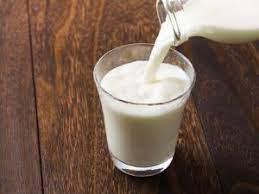Milk, particularly low-fat or skim milk, can be a part of a healthy diet for individuals with fatty liver disease, but it’s important to consume it in moderation and as part of a balanced diet. Fatty liver disease can be of two types: alcoholic fatty liver disease (AFLD) and non-alcoholic fatty liver disease (NAFLD).
For individuals with NAFLD, which is more common and not related to alcohol consumption, dietary changes are an important part of managing the condition. Here’s how milk fits into the picture:
Low-Fat Dairy:
Dairy products like milk are a good source of calcium and protein, which are essential for overall health. Opt for low-fat or skim milk, as these options have less saturated fat. Saturated fats are best limited in the diet, especially for those with fatty liver disease.
Sugar Content:
Be mindful of added sugars in flavored or sweetened milk products. Excessive sugar consumption can contribute to the progression of fatty liver disease, so it’s important to choose unsweetened or minimally sweetened milk products.
Portion Control:
Moderation is key. While milk can be a part of a healthy diet, it’s important not to overconsume it, as excess calorie intake can contribute to weight gain, which is a risk factor for NAFLD.
Balanced Diet:
Milk should be a component of a balanced diet that includes a variety of foods, such as fruits, vegetables, lean proteins, and whole grains. A well-balanced diet can help improve liver health.
It’s important to note that individual dietary recommendations may vary based on the severity and specific characteristics of your fatty liver disease. Additionally, making lifestyle changes, including regular exercise and weight management, can also be crucial in managing fatty liver disease.

